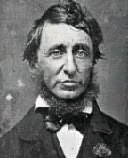- Shopping Bag ( 0 items )
-
All (112) from $1.99
-
New (23) from $2.06
-
Used (89) from $1.99





Overview
One of the great books of American letters and a masterpiece of reflective philosophizing. Accounts of Thoreau's daily life on the shores of Walden Pond outside Concord, Massachusetts, are interwoven with musings on the virtues of self-reliance and individual freedom, on society, government, and other topics. A selection of the Common Core State Standards Initiative.
In this illustrated adaptation of Thoreau's famous work, a man retreats into the woods and discovers...